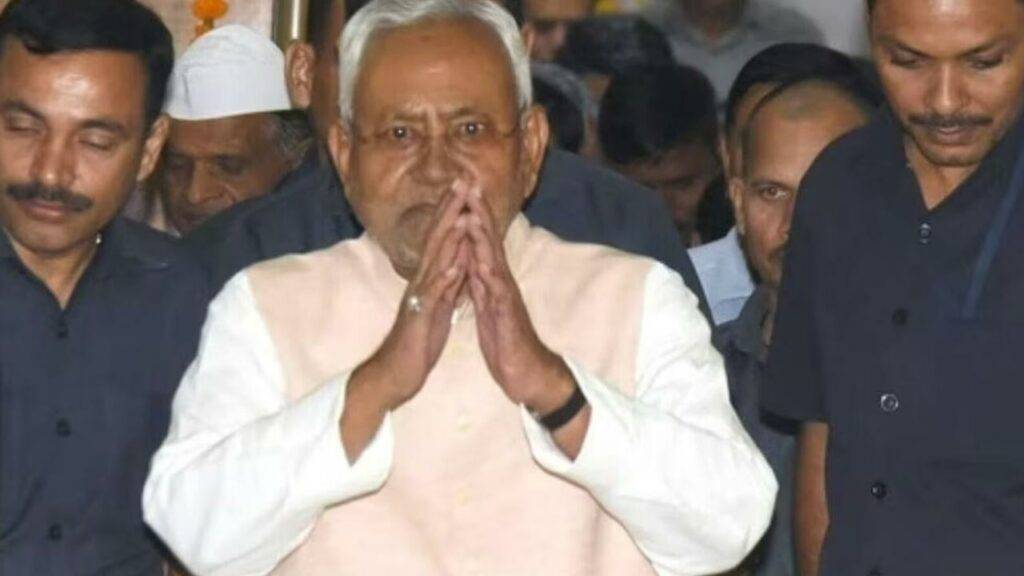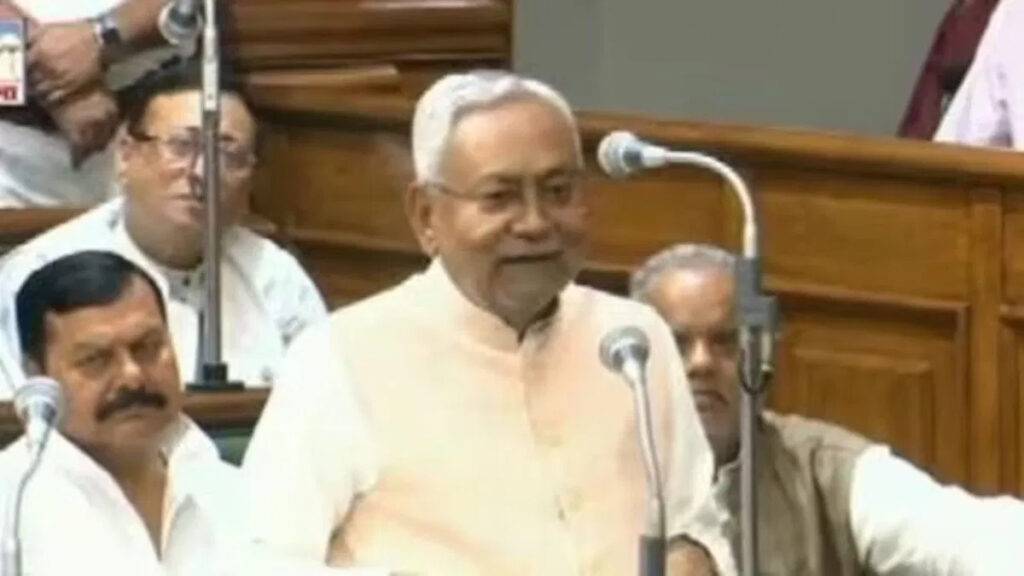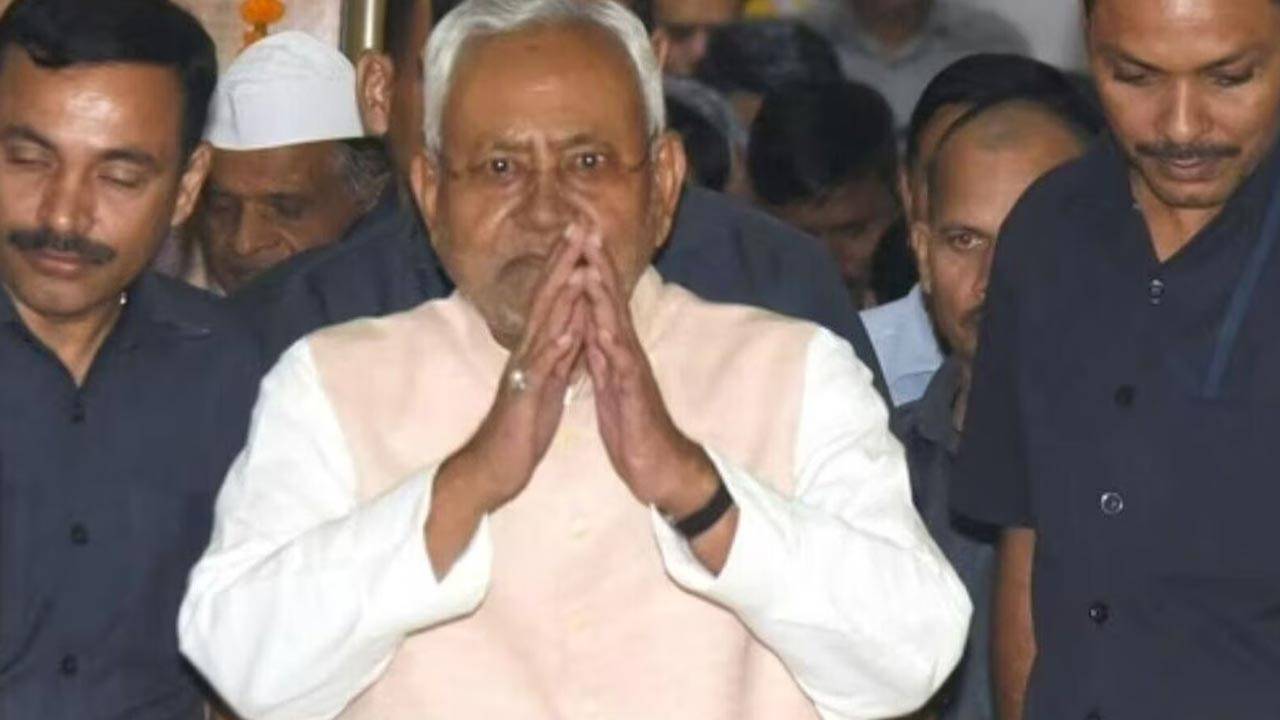Bihar Chief Minister Nitish Kumar recently issued a public apology for his controversial remarks on population control. The statement, made during a speech in the Bihar Assembly, garnered widespread attention and criticism. In this article, we will delve into the details of Nitish Kumar’s statement, the ensuing backlash, and his subsequent apology.

Nitish Kumar Statement Video
In a recent video, Bihar Chief Minister Nitish Kumar issued a public apology for his controversial statement on population control. During a speech in the Bihar Assembly, Kumar made a remark that triggered intense scrutiny and criticism. He was captured saying, “Mai maafi mangta hoon” (I apologize), as a response to the growing backlash against his initial comments.
Kumar’s statement garnered significant attention and condemnation from various quarters, with critics deeming it insensitive and uninformed, especially in the context of women’s rights and family planning. The controversy surrounding his remarks had also raised concerns about potential policy implications in Bihar.
In his video apology, Nitish Kumar expressed remorse for his earlier comments and stressed the importance of constructive dialogue on population control. He pledged to consider a range of perspectives before formulating any related policies.
The public response to his apology has been mixed, with some welcoming it as a step towards rectifying the situation and others remaining skeptical about the sincerity of his commitment. This incident serves as a reminder of the responsibility public figures bear in shaping discourse on sensitive issues.
Bihar CM Nitish Kumar News Video Today
Today, Bihar Chief Minister Nitish Kumar is making headlines in a video that has gained significant attention. In this video, Kumar is expected to address crucial issues and developments in the state. Given his prominent position, Kumar’s statements are of great significance to both the people of Bihar and the wider political landscape.

Viewers and citizens are eagerly awaiting this video as it promises insights into the current state of Bihar, potential policy announcements, and his perspective on pressing matters. Nitish Kumar’s leadership has been instrumental in shaping the course of Bihar’s governance, and his statements often hold sway over political debates and decisions.
As Bihar continues to grapple with a range of challenges, from economic development to social issues, the content of this video is anticipated to shed light on the state’s future trajectory. It also presents an opportunity for the Chief Minister to address concerns, present new initiatives, and engage with the public, making it an important event for the state and beyond.
Nitish Kumar Ka Video Speech
Bihar Chief Minister Nitish Kumar recently delivered a significant speech that addressed key issues facing the state. Kumar’s speech covered a wide range of topics, including economic development, education, healthcare, and social welfare. He emphasized the importance of inclusive growth and outlined specific measures to uplift marginalized communities.
One notable highlight of Kumar’s speech was his commitment to improving the quality of education in Bihar. He announced initiatives to enhance educational infrastructure, provide training to teachers, and promote digital learning. Kumar also stressed the need for increased access to healthcare services, particularly in rural areas.
Furthermore, the Chief Minister addressed concerns about agriculture and rural development, outlining strategies to boost agricultural productivity and support farmers. He underscored the significance of sustainable practices and the adoption of modern farming techniques.
Kumar’s speech also touched upon issues related to women’s empowerment and gender equality. He reaffirmed his commitment to creating a safe and supportive environment for women in Bihar, with initiatives aimed at improving access to education and economic opportunities.
Overall, Nitish Kumar’s speech reflected a comprehensive vision for Bihar’s development, focusing on areas crucial for the well-being and progress of the state and its residents. His address garnered attention for its pragmatic approach and commitment to positive change.






